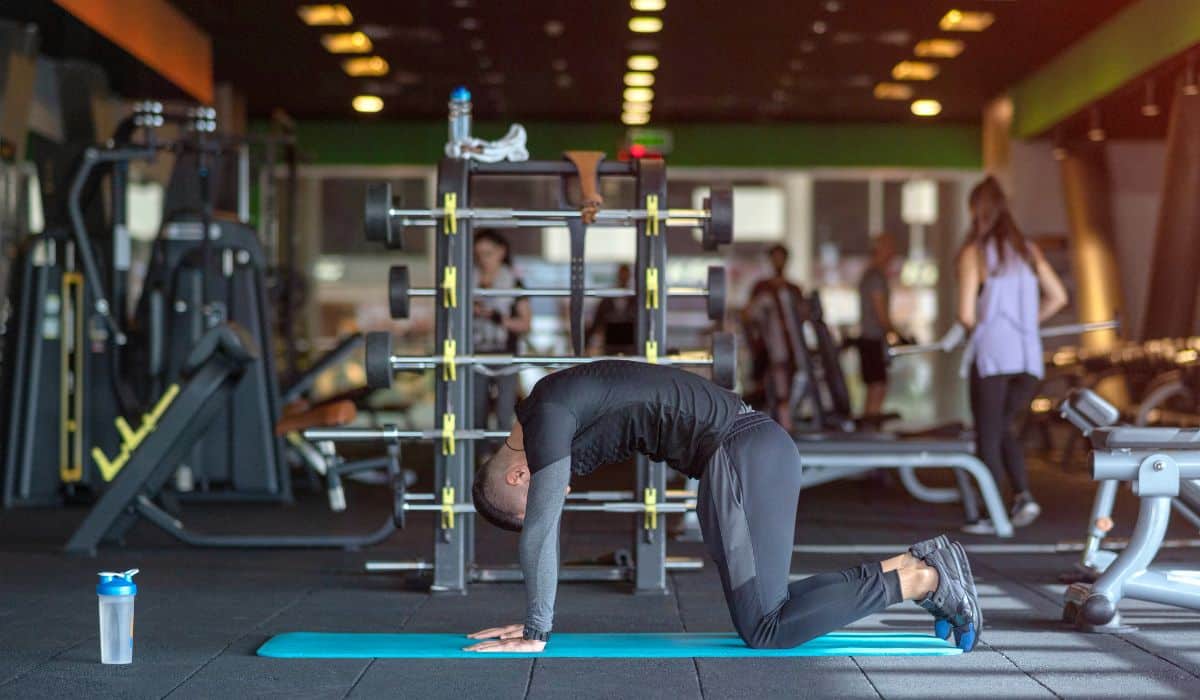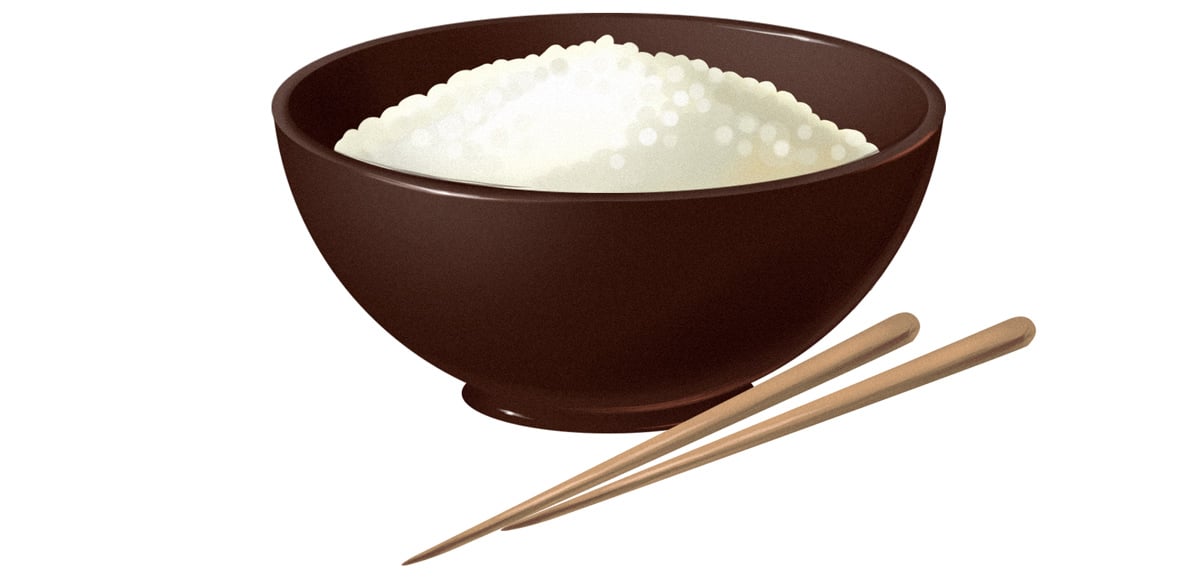Even if you're pretty new to working out, you've probably heard the advice to eat a post-workout meal (possibly with the implication that your muscles will waste away into dust if you don't start scarfing down protein as soon as your workout is done).

It's important to give your body the fuel it needs to recover after a workout - that's how you get stronger. On the other hand, unless you worked out on a completely empty stomach, it may not actually be that crucial to do it immediately after the workout. But even though the post-workout meal isn’t earth-shatteringly important in theory, there are still a couple good reasons why you might want to do it in practice:
- It’s an organizational tool. It’s important to get that recovery nutrition in at some point. If you make a habit of doing it right after your workout, you won’t forget.
- Your next workout isn’t the only thing that matters. If you get your recovery nutrition before your next workout, your next workout won’t be compromised. But presumably, you want to do at least a couple things between one workout and the next, and if your workouts leave you really wiped, you'd want to start your nutritional recovery as soon as possible.
So even though you theoretically could get your post-workout nutrition at any point between Workout A and Workout B, there still are a couple decent reasons to get it in pretty quickly. The research is covered in more depth here, but below is a guide to putting it into practice.
Do I Even Need a Post-Workout Meal?
First of all, a post-workout meal isn't about treating yourself to the calories you "earned" working out. Exercise is a great tool for health, and it can be helpful for weight loss, but not because it burns huge amounts of calories (it doesn’t) or somehow makes junk food healthy. The point of a post-workout meal isn’t that you’ve now “earned” some amount of food; it’s that you’re refueling your body to help it recover and repair itself so that you can get stronger and faster. It’s about supporting performance.
So how do you know if you need special post-workout nutrition? If the whole idea of “supporting performance” sounds weird and over-the-top to you, you probably don’t need to worry about it. For everyone else, here’s a simple test:
If you don’t eat anything unusual after a workout, how do you feel? If your energy is fine for the rest of the day, and you head into the next workout feeling just as good as you did for the first, then don’t mess with a good thing. Either your workout wasn’t terribly intense, or your everyday diet already contains all the recovery fuel you need in a timeframe that works for your individual body. If you're not doing very intense workouts, advice aimed at athletes or even high-level amateurs probably isn't applicable to you.
On the other hand, you may benefit from a post-workout meal if…
- You’re doing appropriate mobility work, but you’re still achy and tired for the rest of the day after a workout.
- Even if you’re not physically tired after a hard workout, you’re mentally tired or brain-foggy; it’s hard to concentrate.
- It’s hard to motivate yourself for your next workout.
- Your performance isn’t improving, or maybe it’s even getting worse.
- You’re losing weight even though you don’t want to.
- You switched to Paleo and it tanked your workouts.
Basically, these are signs that your everyday diet isn’t giving you the nutrition you need to recover from your workouts (assuming that your sleep is basically adequate and your stress levels are under control).
Don’t Overthink This
There’s a whole world of sports recovery nutrition literature out there. But the important question for most of us isn’t what the perfect post-workout meal would be. It’s what kind of post-workout meal will be good enough and still fit into an actual human’s realistic time and effort constraints. Most people aren’t interested in weighing out every gram of their chicken breast, and they shouldn’t really have to be, so here’s some realistic advice for people who aren’t professional athletes:
Protein is important for building muscle, but the research is more conflicting than you might think, and for most people, protein powder shouldn’t be necessary. A standard recommendation is 20-30 grams, which is roughly what you’d eat in a Paleo meal anyway, so just eat a meal-sized amount of protein-rich food and don’t stress about it..

Carbs are important for restoring the carbohydrate stores in your muscles, which your workout just depleted. Stocking back up on carbohydrates (in the form of glycogen) gives you a store of energy for your next workout. Here's a reasonably easy way to approach post-workout carbs from a Paleo standpoint:
- Start with a potato or sweet potato the size of 1-2 of your fists put together.
- If you don’t feel recovered, or if you’re still a little shaky, brain-foggy, or unusually tired, add more until you feel better.
- If that gives you weird blood sugar issues, or if it brings your weight loss to a grinding halt, cut back until you feel better.
Using your fist as a serving size is a quick-and-dirty way of tailoring the amount of carbs to your body size, and the rest of it is an imprecise but good-enough way of accounting for factors like your personal carb tolerance, weight-loss goals, rate of glycogen vs. fat burning, and type of workout. This probably won’t get you the most perfectly optimally tailored amount of glucose at the most perfectly optimal time, but it’s something actual human beings in the real world can do.
As for electrolytes, if you had a really sweaty workout (running outside in the summer), you can make a DIY sports drink that does a lot more for your body than Gatorade.
Tweaking for Weight Loss or Gain
If you want to gain weight or maintain a muscle gain, make this a fourth meal that you eat in addition to your regular three: you need the extra calories. If you want to lose weight or maintain a large fat loss, eat this as a regular meal (e.g. work out from 6:30-7:30am and have your post-workout breakfast at 8). Since it’s a regular Paleo meal, also add some non-starchy vegetables to the plate.
(As a side note: the balancing act between weight loss and athletic performance can be tricky; there are all kinds of advanced nutrition timing strategies for tweaking it, but this is an article about the basics, not advanced intermittent fasting plans).
Summing it Up
One of the reasons why Paleo is so great is that it frees you from obsessive counting and tracking – and that should go for post-workout nutrition, too. Even if a post-workout meal works better for you, most people shouldn’t need to get really intense about measuring it. A good basic template is:
- A meal-sized amount of protein,
- An amount of carbs that works for you (start with 1-2 “fists”)
- Some electrolytes if you need them.
Eat it as a fourth meal or add vegetables and eat it for one of your regular three meals, depending on your weight status and goals. If you’re not aiming for the very top tier of performance, it doesn’t have to be complicated, there’s no math required, and you can do it all with real food.





Leave a Reply